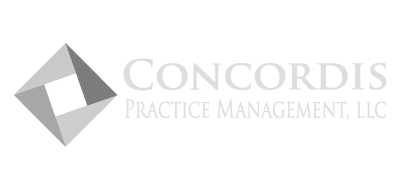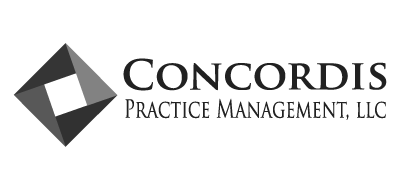
Everyone’s Job in the Medical Practice has an Impact on the Revenue Cycle
Does your staff think the Billing Department is the only staff members responsible for the revenue cycle? If they do, you may want to have an impromptu staff meeting to discuss how everyone plays a role in the revenue cycle. The Front Desk (Administrative) staff, Clinical staff, Providers, Billing staff, and the Practice Manager all are important to ensuring the practice maximizes the revenue generated.
Some staff members may think the revenue cycle starts when the Billing Department receives the closed chart from the provider; however, this is not the case. The revenue cycle starts when a patient calls the office to schedule an appointment and continues until there is a zero balance on the patient’s billing account.
The Front Desk (Administrative) staff is responsible for:
- Creating the patient’s medical record and obtaining the patient’s demographic information, to include their insurance information. They need to ensure the patient’s name is spelled exactly as it is on the insurance card. If this information is not entered correctly the claim will be rejected or denied.
- Ask the patient at the appointment if there have been any changes in their personal information or insurance, and updating the demographics in the practice management system.
- Ask for a copy of the patient’s photo identification and insurance card at least every three months to ensure nothing has changed.
- Verify insurance coverage and benefits prior to the patient’s appointment.
- Ensuring referrals and prior authorization have been obtained prior to appointment.
- Collect the appropriate co-payment, deductibles, and co-insurance on every patient at either check-in or check-out. If you are not collecting the patient’s payment responsibility, the practice could be violating your participation agreement with the insurance payers.
If the appointment reminder phone call is made by a member of your staff, this is another opportunity that could enhance the revenue cycle. The Front Desk staff should be coordinating their reminder phone calls with the Billing staff to determine if a patient has an outstanding balance. The reminder phone call should include a discussion of any unpaid balance and ask if they would like to settle that unpaid amount today using a credit card.
The Clinical staff’s role includes appropriately documenting the medical record, to include vital signs, lab results, and supplies used during a procedure. In many practices, the Clinical Staff is taking on an additional role as “scribe” for the provider, which allows the provider more time for the patient encounter.
The Physician and Non-Physician Provider roles must also appropriately document the patient encounter in the medical record to include prescriptions provided, lab or radiologic studies, orders, follow-up instructions, and similar comments. Their documentation is used to determine CPT and ICD-10 codes for the visit. The number of patients seen per day, and the type of medical services provided is an important aspect of the revenue cycle.
The Billing staff, whether in-house or outsourced, plays a major role in the Revenue Cycle. Their duties include:
- Scrubbing the claim to ensure all CPT and ICD-10 codes are appropriate for the encounter.
- Enter charges in the practice management system in a timely manner.
- Submit the claim to the clearinghouse for payment within timely filing deadlines of each insurance payer.
- Post payments received from the patient and/or insurance payer.
- Send patient statements on a monthly basis.
- Notify the Practice Manager immediately when the payment is different than the contracted amount.
- Review denials and submit appeals in a timely manner.
- Communicate with the providers when trends are noticed in claims being denied.
Practice Manager’s responsibilities include such tasks as:
- Ensure adequate staff to handle the revenue cycle management process.
- Overseeing the entire revenue cycle process from scheduled appointment to payment.
- Ensure the practice has appropriate policies and procedures pertaining to the revenue cycle.
- Prepare revenue cycle performance reports on a monthly basis and discuss with the physician leadership.
- Identify trends that impact the financial health of the practice.
- Prepare a list of accounts to be turned over to a collection agency, or write off the balance, and discuss this list with the providers.
- Regularly review insurance contracts to ensure compliance, and attempt to negotiate better reimbursement.
- Ensure all providers are credentialed with the insurance plans.
- Ensure the computers, EMR, Practice Management System, and other IT support equipment are updated to the latest version.
- Utilize technology that may enhance your revenue cycle management, such as online insurance eligibility verification.
- Ensure overpayments are refunded to the insurance payer or the patient in a timely manner.
Does your practice have a policy regarding a patient making a routine appointment if they have an outstanding balance? This may be a good topic to discuss with the physician leadership. All too often a patient may not be current with their payments, and the unpaid balance continues to grow.
As you can see, every staff member has some level of responsibility in the revenue cycle. It is truly a team effort, each separate part dependent on the other. One weak link can cause negative effects on the revenue cycle, which ultimately will reduce revenue for the practice.
Concordis Practice Management can perform a Revenue Cycle Review of your entire process to ensure you are maximizing revenue, or perhaps provide insight into areas for improvement.
Contact Concordis today for a consultation
Sources:
http://www.nuemd.com/revenue-cycle-management/rcm-101
http://www.fortherecordmag.com/archives/061812p10.shtml
http://www.hcpro.com/content.cfm?dp=HIM&content_id=230316&publication=147&
http://www.hfma.org/Content.aspx?id=19144
http://library.ahima.org/xpedio/groups/public/documents/ahima/bok1_035391.hcsp?dDocName=bok1_035391



No Comments